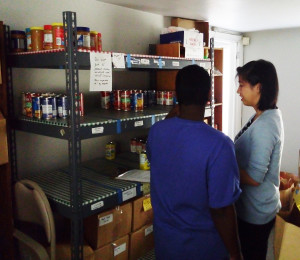The only significant predictor of self-reported life satisfaction in adults with autism spectrum condition (ASC) is whether or not they participate in society, a new study reports, indicating that more resources should be directed toward increasing community engagement for individuals with ASC.
Researchers surveyed 43 adults with autism and 44 without about how much difficulty they experienced in six domains of living: understanding and communicating, mobility, self-care, getting along with people, life activities (divided into household and work/school), and participation in society. The adults with autism reported more difficulty overall. In particular, they experienced significantly more difficulty than their neurotypical peers with participation in society, getting along with others, and understanding and communicating. Individuals with ASC also reported greater challenges with school and work activities. The individuals with ASC rated their difficulties in the domains of mobility, household, and self-care, as no greater than the control group, indicating these as areas of strength.
These findings may seem to only underscore the known core challenges associated with autism. However, the purpose of surveying participants was to gain a subjective perspective of these individuals’ lived experiences. Some challenges faced by individuals with autism are difficult for an observer to detect. For example, someone may seem to get along with others effectively, but it might not be obvious that this takes an extreme amount of effort and concentration. Recent research shows that this kind of “masking” behavior is especially common in females with autism (Spectrum News 10/19/2015), who—very unusually—made up 63 percent of the participants in this study.
The second part of the research surveyed the same individuals about their life satisfaction in 10 areas like health, job, housing, and leisure time. The participants with ASC reported lower life satisfaction overall. The areas of sexuality, friends and relatives, and self were rated significantly less satisfying for individuals with ASC. The difference between the two groups in health satisfaction trended toward significance.
The researchers looked for relationships between the two data sets (difficulty in domains of living and life satisfaction in various areas) to try to determine if certain kinds of challenges led to more or less life satisfaction. The analysis revealed that for individuals with ASC, the only clear relationship between challenges and satisfaction was participation in society. Differing levels of participation in society explained 49 percent of the difference in life satisfaction among individuals with ASC. Individuals who participated more in society tended to report greater life satisfaction than those who did not.
This study underlines how much it means to individuals with autism when they are included in society. Creating opportunities for social inclusion and teaching individuals with ASC practical skills to facilitate societal integration are constructive goals that could improve the lives of individuals with autism. In addition, the authors noted that it is important “to create a respectful and welcoming environment” and to approach people with autism “with not just a deficit-oriented attitude, but an appreciative one.”
This research suggests that appropriate social-centered interventions, for individuals on the autism spectrum and neurotypicals, will go a long way toward improving the lives of individuals with autism in the present.
References:
Schmidt L, Kirchner J, Strunz S, Broźus J, Ritter K, Roepke S & Dziobek I. (2015). Psychosocial functioning and life satisfaction in adults with autism spectrum disorder without intellectual impairment. Journal of Clinical Psychology, 71(12):1259-1268.









